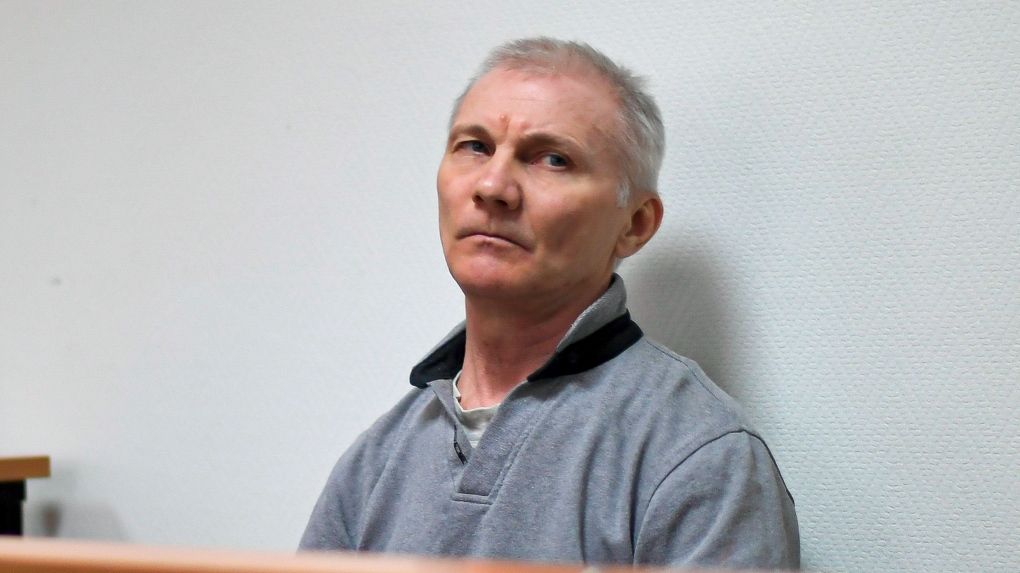Imprisoned Kremlin Critic Alexei Gorinov Faces New Conviction Amid Ongoing Crackdown on Dissent
Date: March 2023
In a significant development for political dissent in Russia, imprisoned Kremlin critic Alexei Gorinov has received a new conviction, adding three more years to his existing sentence. The 63-year-old former municipal council member was found guilty for his outspoken opposition to Russia’s ongoing war in Ukraine, reinforcing concerns over the country’s increasingly repressive measures against dissenting voices.
Details of the Conviction
The trial, which spanned three days and took place in the Vladimir region, concluded on Friday. Gorinov is already serving a seven-year sentence for previous remarks deemed critical of the Russian military. The court’s decision now mandates that he spends a total of five years in a maximum-security prison, as reported by The Associated Press. Gorinov’s lawyer indicated that this new sentencing effectively extends his term by an additional year.
Gorinov’s first conviction came in July 2022 when a Moscow court ruled him guilty of “spreading false information” about the military as a result of his comments during a municipal council meeting. At that meeting, he raised concerns about the morality of hosting a children’s art competition amidst the turmoil in Ukraine, stating poignantly: “Every day children are dying.” His case marked a grim milestone, as he became the first known individual to be imprisoned under a stringent 2022 law aimed at suppressing public dissent related to the war.
Significance of Gorinov’s Case
In a March 2023 interview conducted from his prison cell, Gorinov articulated that his imprisonment serves as a cautionary tale for ordinary Russians. He noted, “Authorities needed an example they could showcase to others—an ordinary person, rather than a public figure.” This statement underscores the lengths to which the Kremlin is willing to go to silence dissent and discourage public criticism, reflecting a broader pattern of repression against those who oppose the war.
Subsequent Charges and Allegations
Following his initial sentencing, Gorinov faced additional legal troubles. Last year, he was charged with “justifying terrorism,” a move that many of his supporters deemed politically motivated. These charges arose from conversations with fellow inmates, where topics included Ukraine’s Azov Battalion, which Russia classifies as a terrorist group, and incidents like the 2022 explosion of the Crimean bridge, which Moscow similarly condemned as an act of terrorism. Gorinov has consistently denied the charges, maintaining that his statements simply acknowledged that Crimea is part of Ukraine and identified the Azov Battalion merely as part of the Ukrainian military.
Visuals and Courtroom Presence
During his latest trial, media outlets like Mediazona captured images of Gorinov situated in a defendant’s cage, a stark representation of the judicial proceedings against him. He was seen with a peace symbol obscuring his prison badge and a handwritten sign displaying the message: “Stop killing. Let’s stop the war.” This visual protest illustrates his steadfast commitment to advocating for peace, even from behind bars.
Gorinov’s Closing Statement: A Call for Shared Responsibility
In his closing remarks, Gorinov took ownership of his feelings of guilt regarding the war, stating, “My guilt is that I, as a citizen of my country, allowed this war to happen and could not stop it.” He went on to express the desire that his accountability be shared with the war’s organizers and supporters, as well as those persecuting individuals who call for peace. “I continue to live with the hope that this will happen someday,” he added, offering a poignant reflection on the societal responsibility surrounding the conflict.
The Broader Context of Political Repression in Russia
Since the onset of the war in Ukraine in February 2022, a staggering number of Russians—approximately 1,100—have faced criminal prosecution due to their anti-war sentiments. According to OVD-Info, a group dedicated to monitoring political arrests, nearly 350 individuals remain behind bars or have been forcibly placed in psychiatric facilities. This alarming trend signifies an ongoing silencing of dissenting voices and a concerted effort by the Russian government to stifle any opposition.
The developments in Gorinov’s case are emblematic of a larger crackdown on free speech and political dissent in Russia. The war in Ukraine has transformed not just the geopolitical landscape but also the domestic sphere, where the government resorts to increasingly draconian measures to quash any perceived threats to its narrative.
Conclusion
Alexei Gorinov’s new conviction highlights the precarious state of freedom of expression in Russia. His case serves as a stark reminder of the consequences faced by those who dare to challenge government narratives amidst a climate of fear and repression. As the war in Ukraine continues and dissent is met with harsh reprisals, the plight of individuals like Gorinov resonates as a vital call to action for human rights advocates around the world.
Article contributed by The Associated Press.
